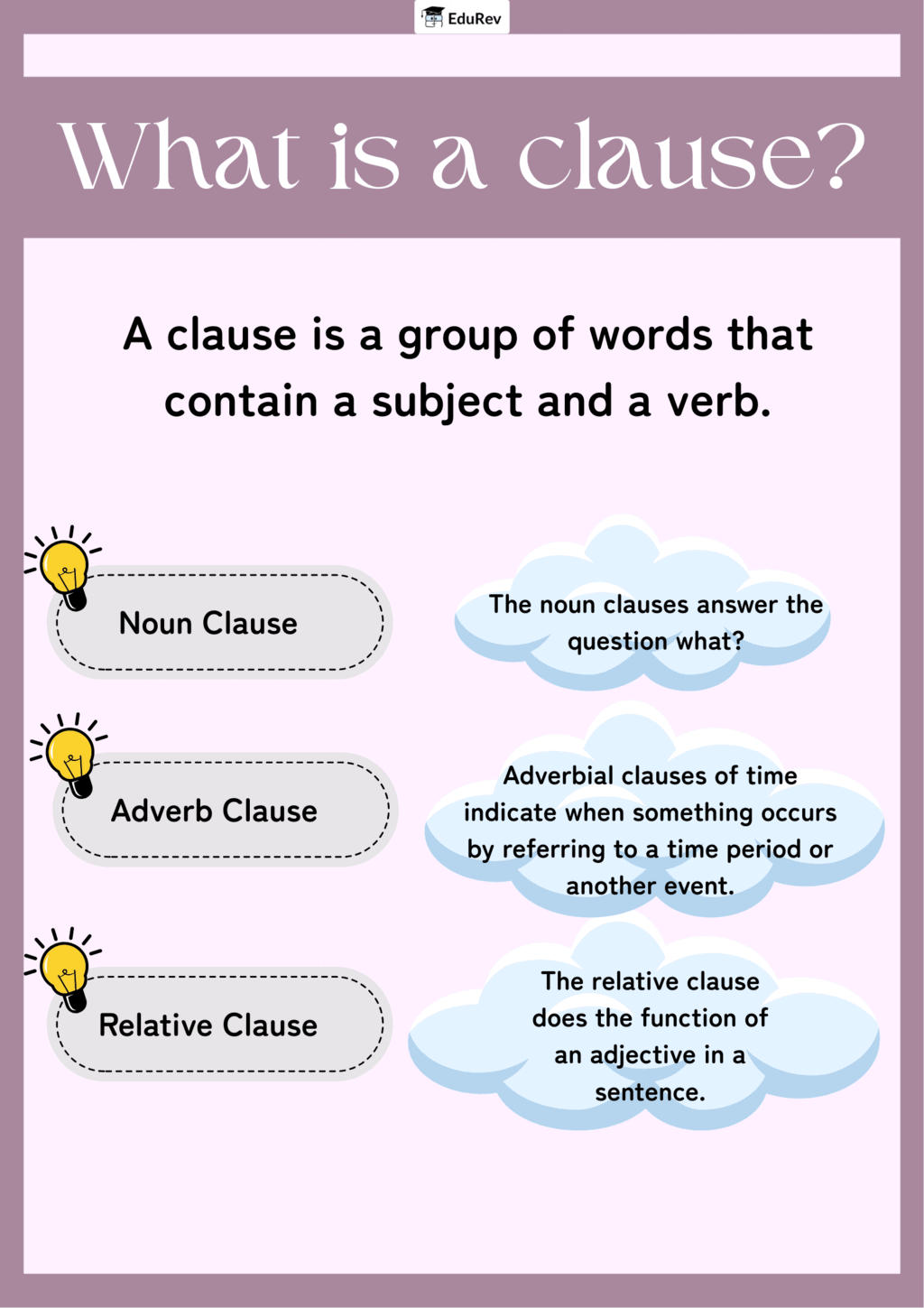Class 10 Exam > Class 10 Notes > English Grammar Advanced > Infographic: Clauses
Infographic: Clauses | English Grammar Advanced - Class 10 PDF Download

The document Infographic: Clauses | English Grammar Advanced - Class 10 is a part of the Class 10 Course English Grammar Advanced.
All you need of Class 10 at this link: Class 10
|
53 videos|210 docs|40 tests
|
FAQs on Infographic: Clauses - English Grammar Advanced - Class 10
| 1. What are the different types of clauses in English grammar? |  |
Ans. In English grammar, there are mainly two types of clauses: independent clauses and dependent clauses. An independent clause can stand alone as a complete sentence because it expresses a complete thought. For example, "She enjoys reading." On the other hand, a dependent clause cannot stand alone and depends on an independent clause to provide context, such as "because she loves stories."
| 2. How do independent clauses differ from dependent clauses? |  |
Ans. Independent clauses express a complete thought and can function as standalone sentences, while dependent clauses cannot stand alone and need an independent clause to make sense. For instance, "He went to the store" is an independent clause, whereas "when he finished his work" is a dependent clause that requires an independent clause to complete its meaning.
| 3. Can you provide examples of compound sentences that include multiple clauses? |  |
Ans. Yes! A compound sentence consists of two or more independent clauses joined by a conjunction. For example, "I wanted to go for a walk, but it started to rain." Here, "I wanted to go for a walk" and "it started to rain" are both independent clauses.
| 4. What role do subordinating conjunctions play in dependent clauses? |  |
Ans. Subordinating conjunctions are words that connect dependent clauses to independent clauses, indicating a relationship between them. Common subordinating conjunctions include "because," "although," "if," and "when." For example, in the sentence "She was happy because she passed the exam," "because she passed the exam" is a dependent clause introduced by the subordinating conjunction "because."
| 5. How can understanding clauses improve writing skills? |  |
Ans. Understanding clauses can greatly enhance writing skills by allowing writers to create more complex and varied sentence structures. By effectively using independent and dependent clauses, writers can convey nuanced ideas, establish relationships between different thoughts, and enhance the overall flow of their writing. This leads to clearer and more engaging prose.
Related Searches
















